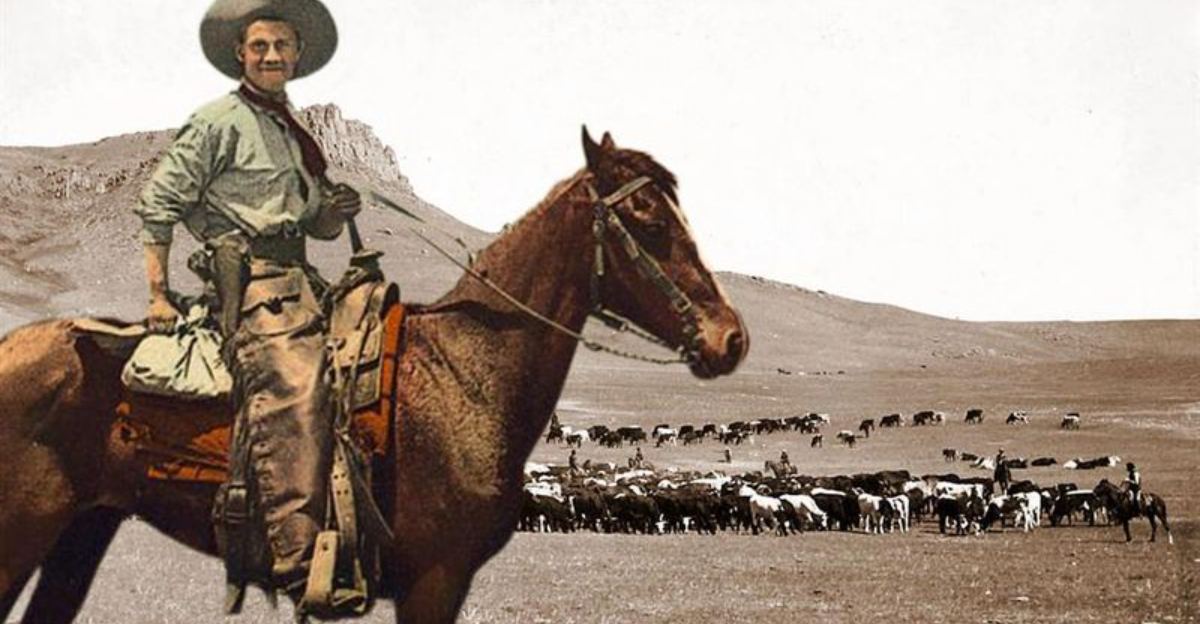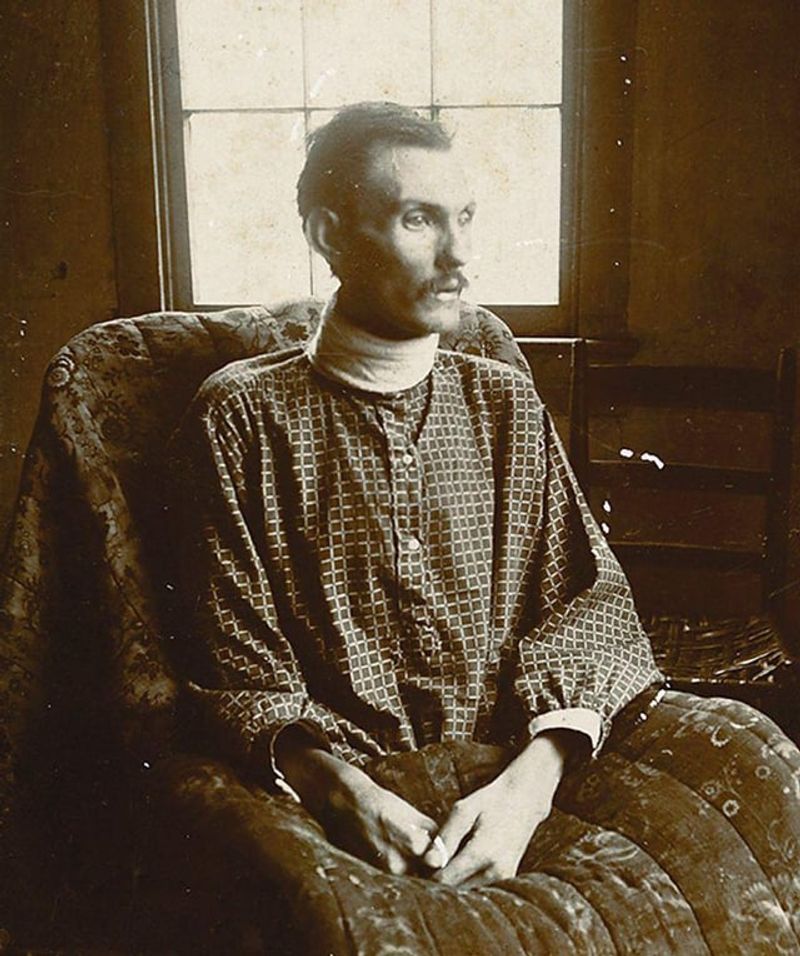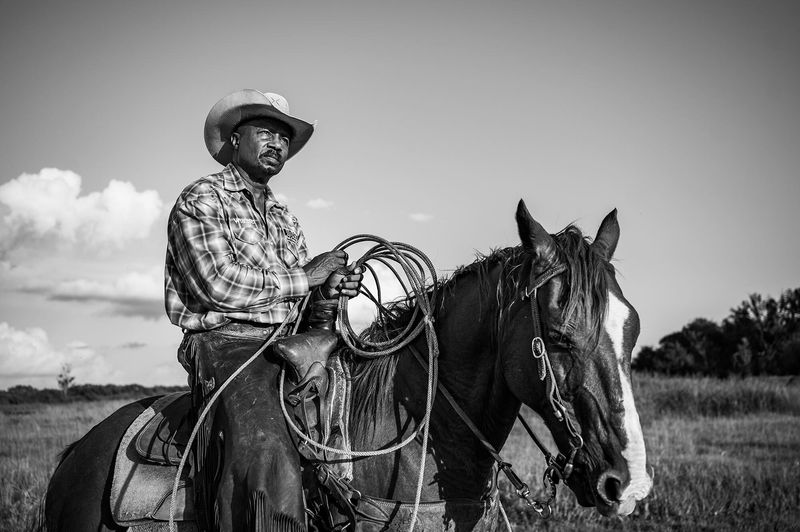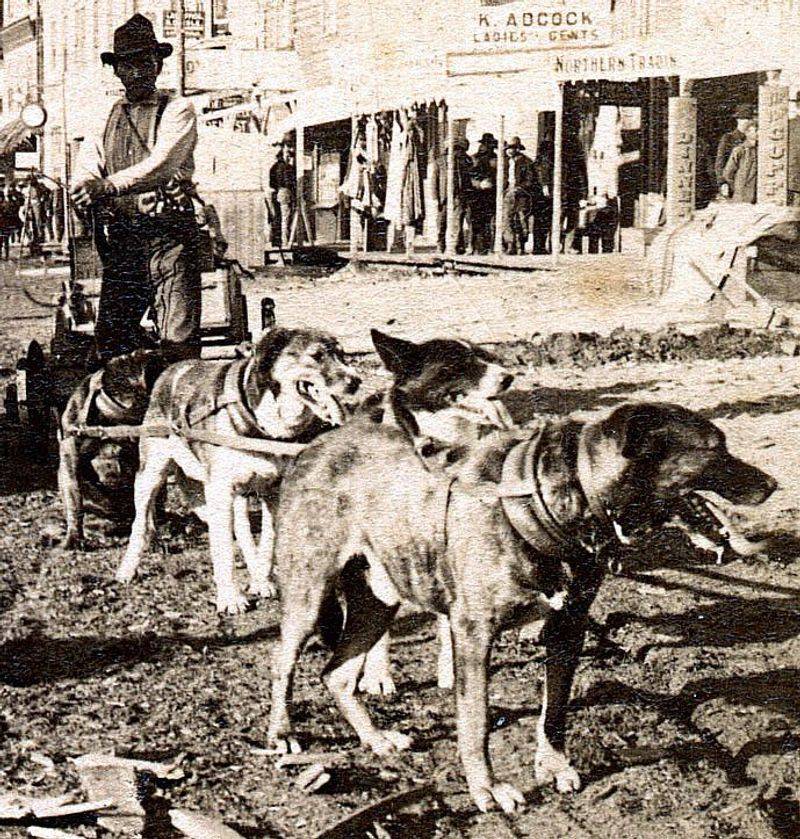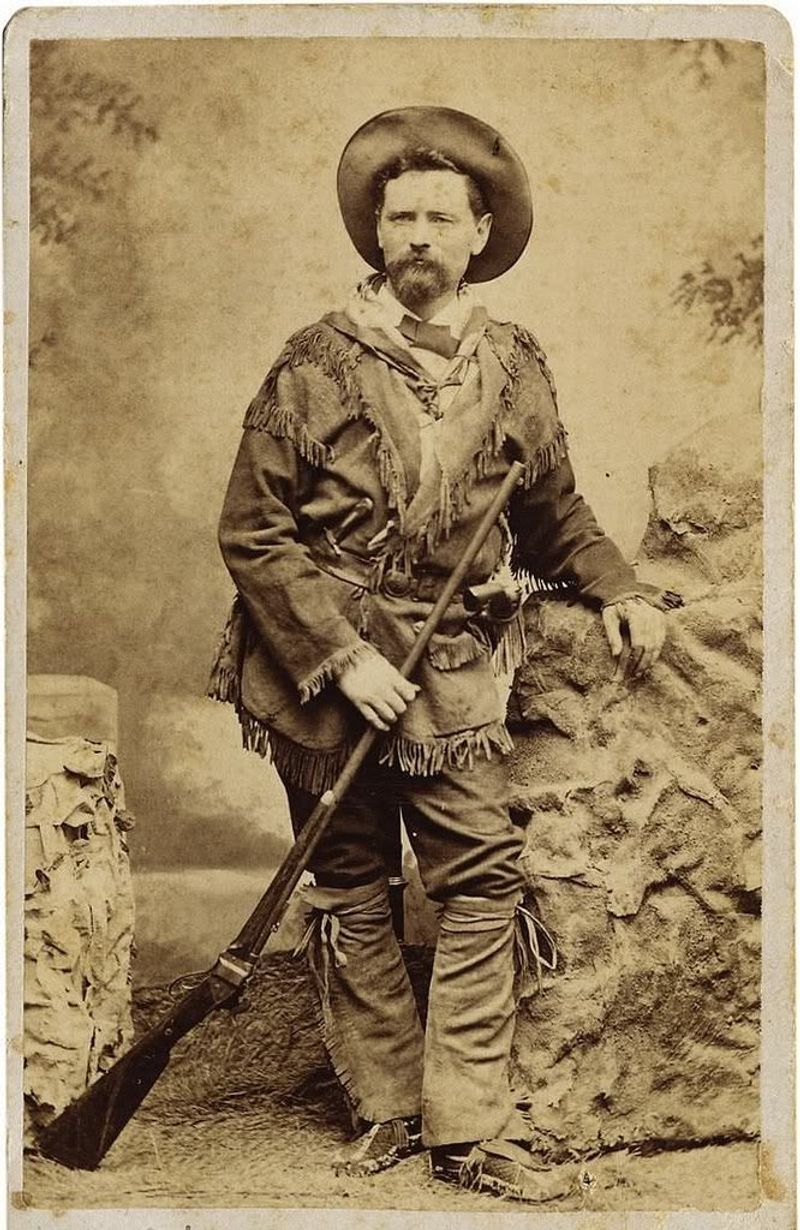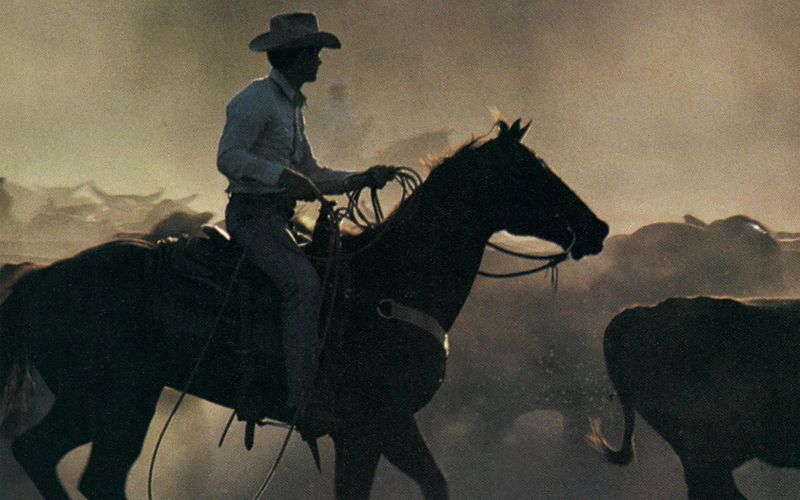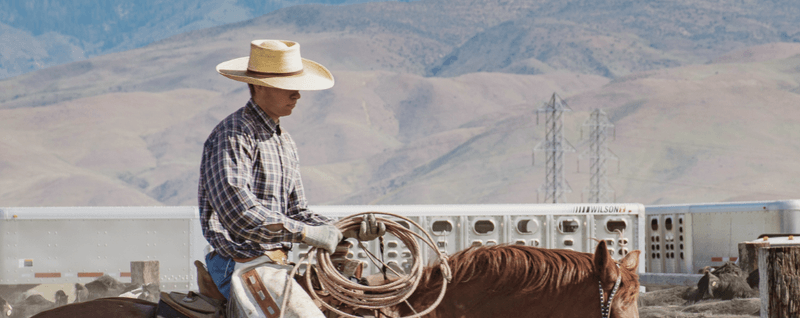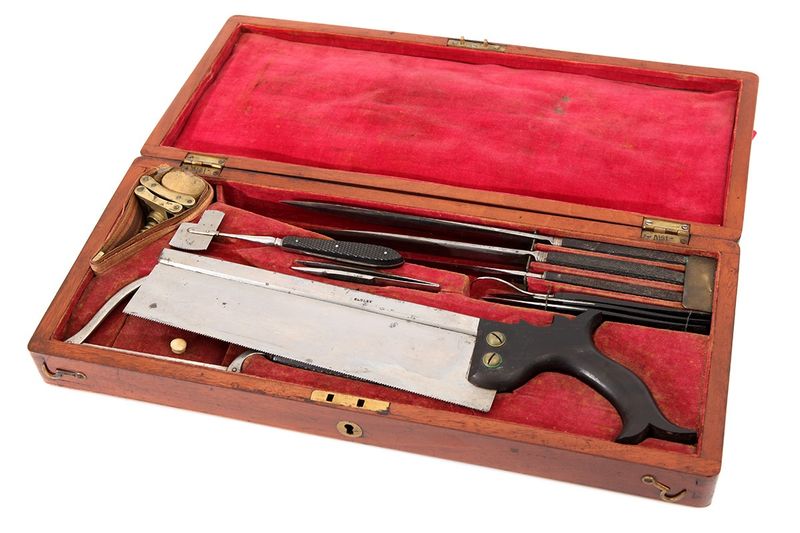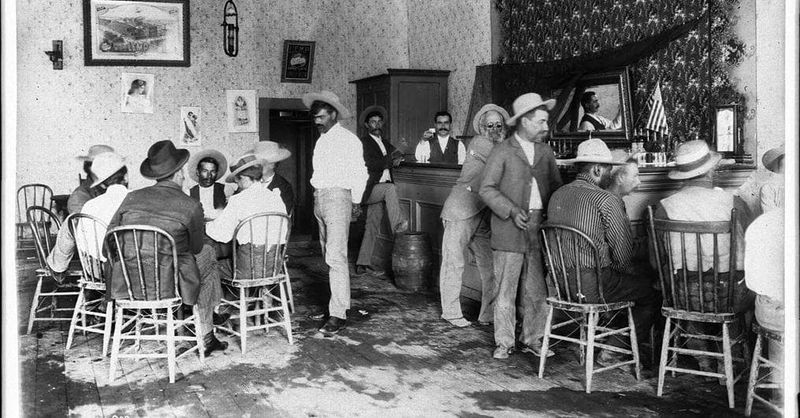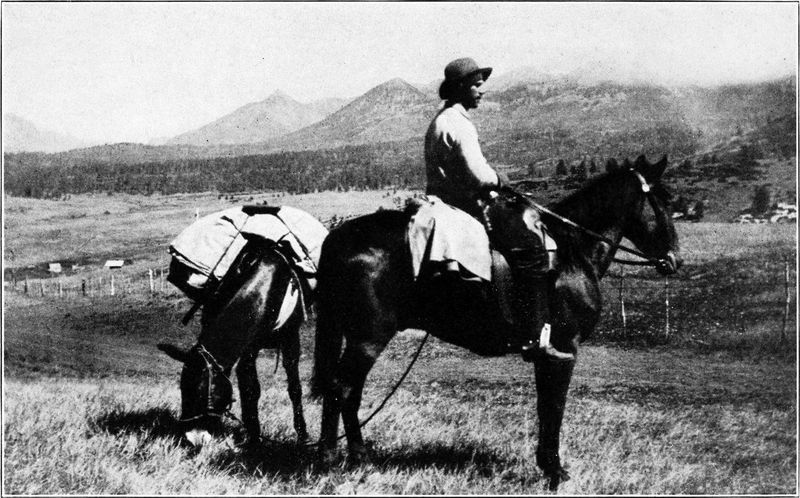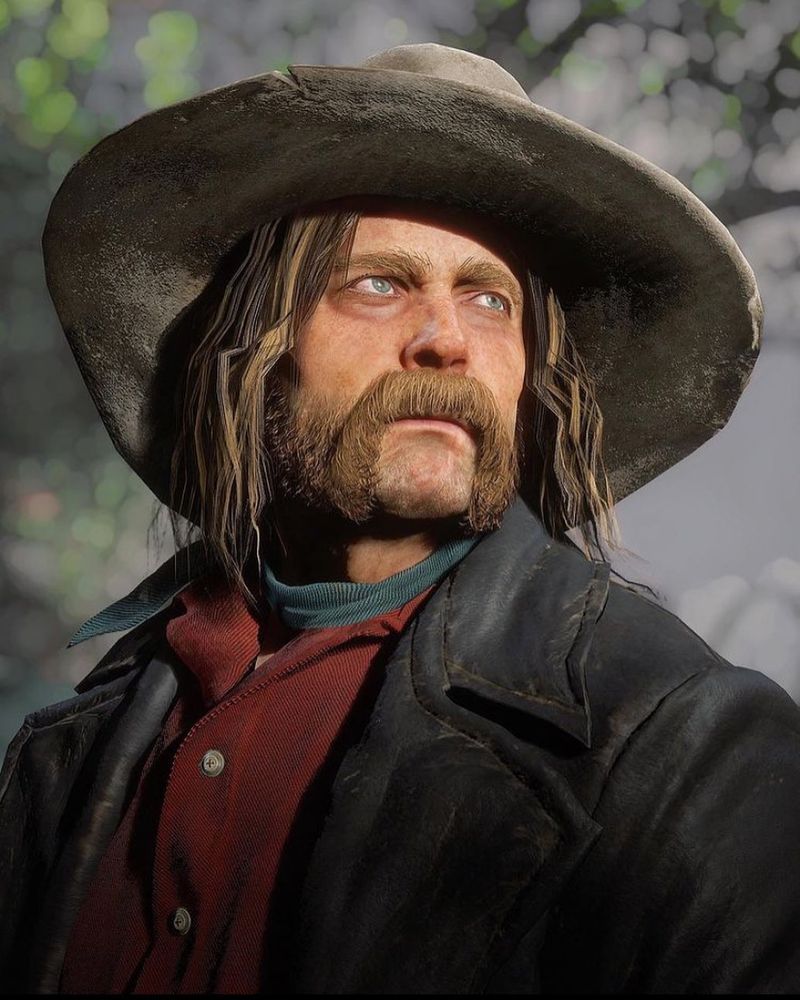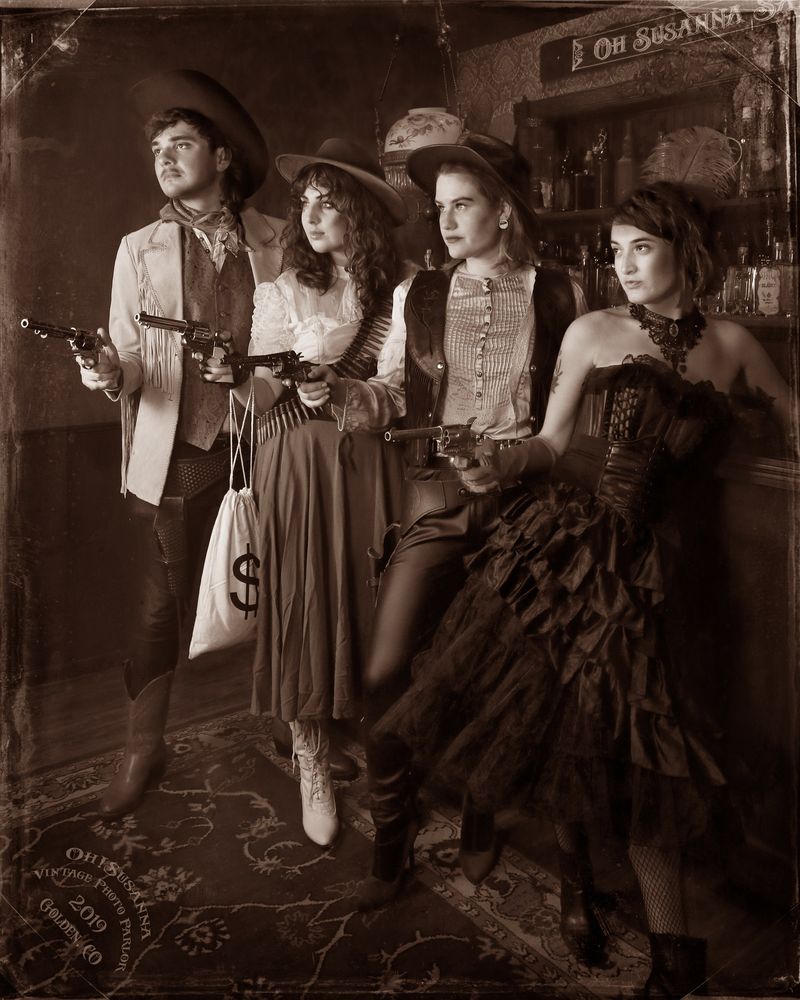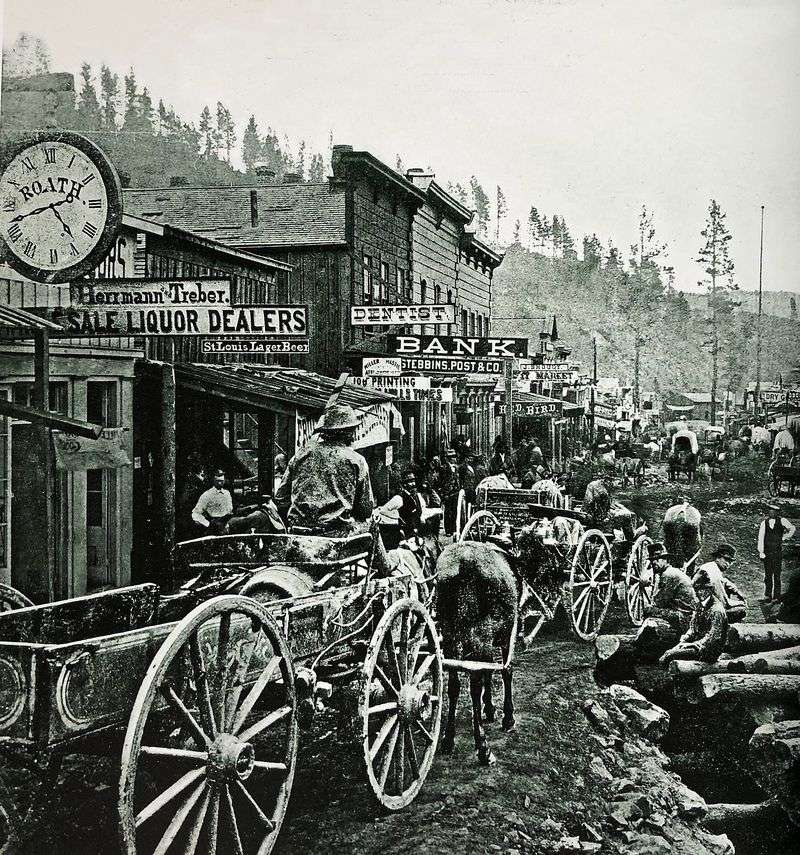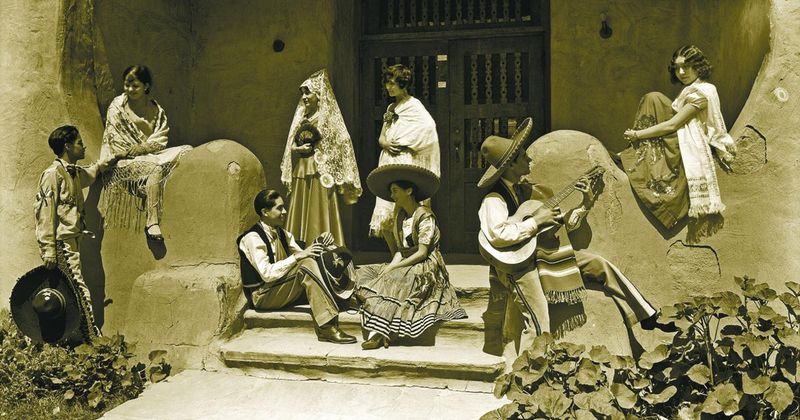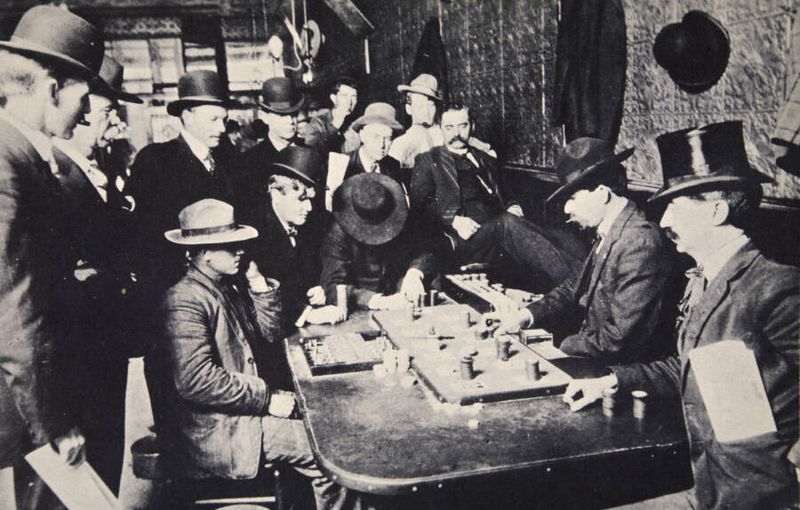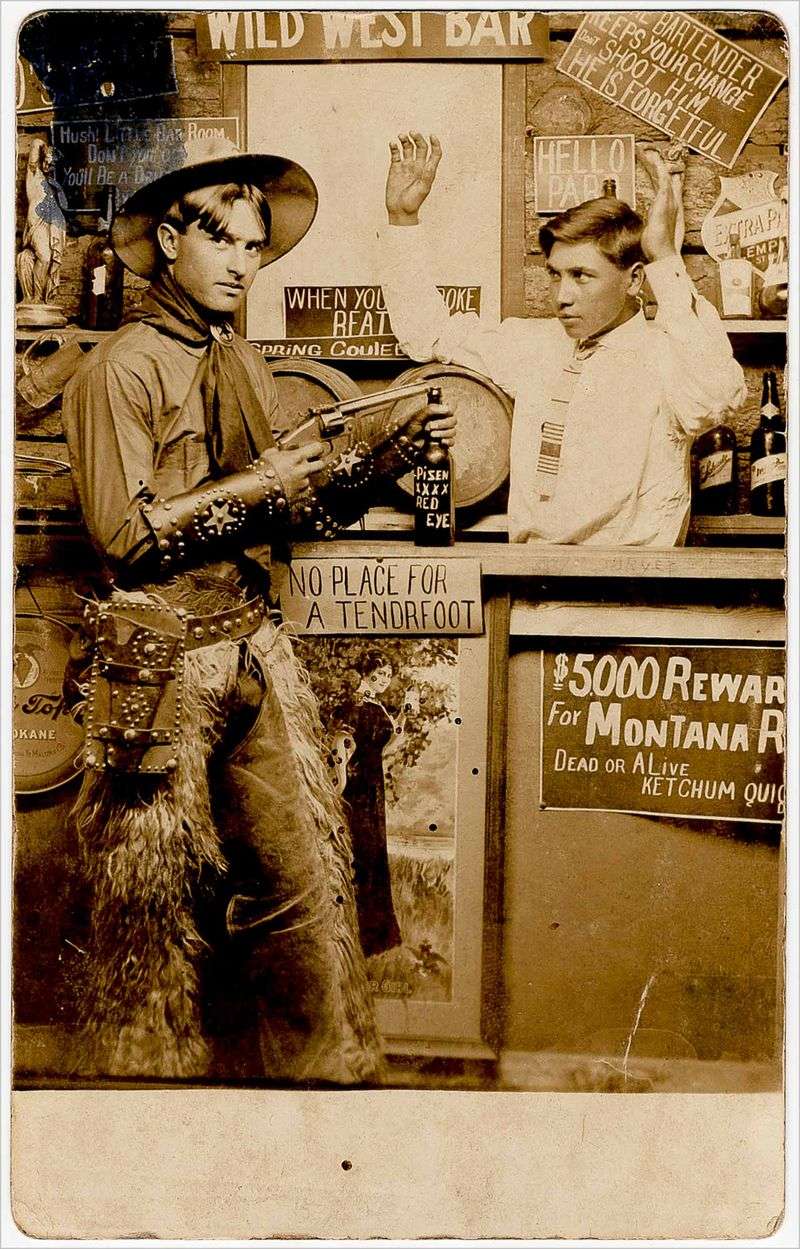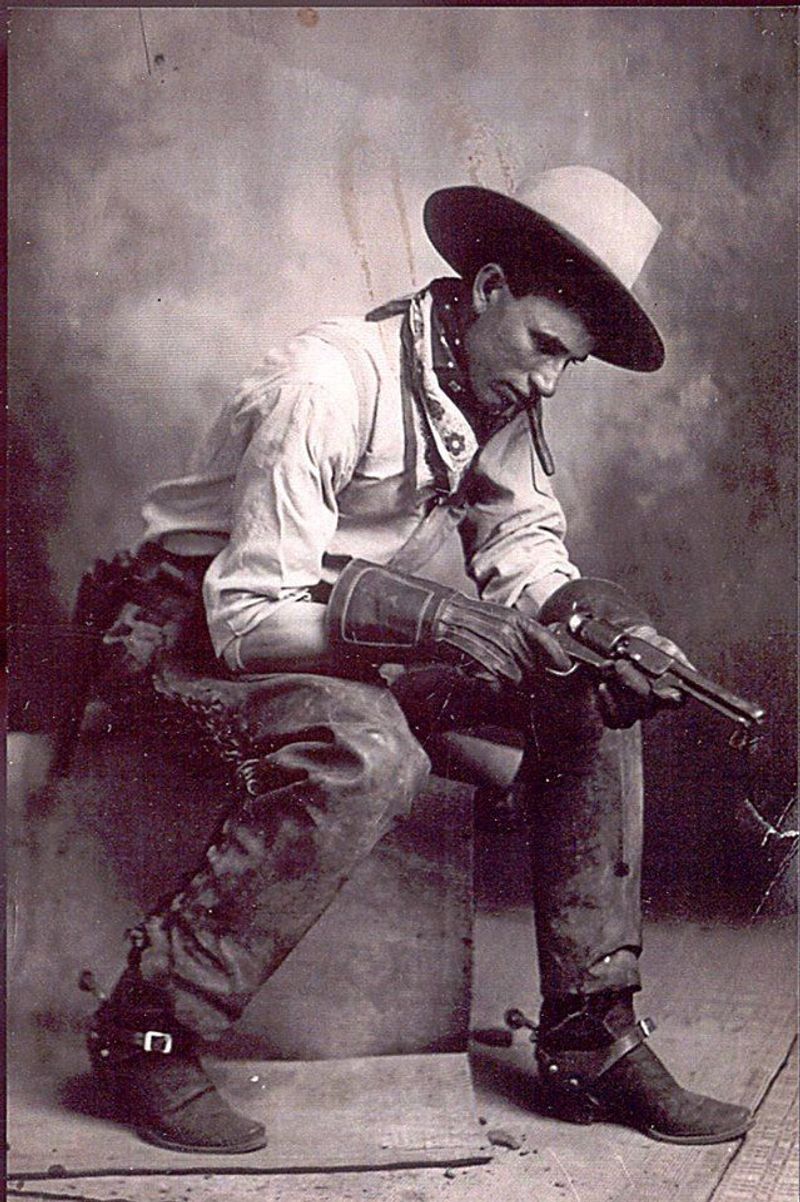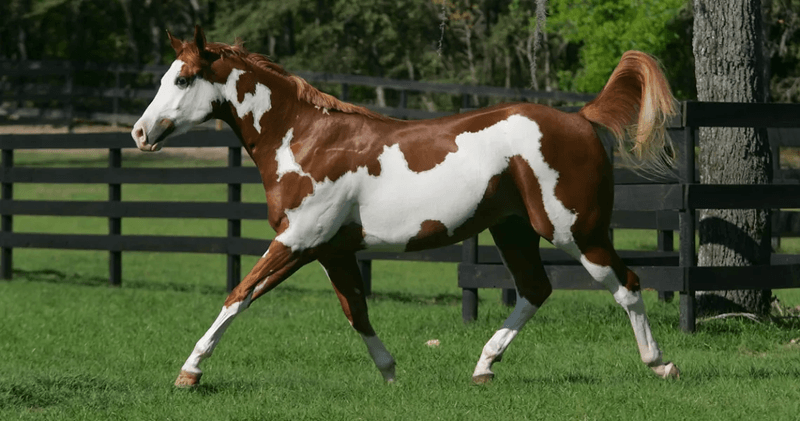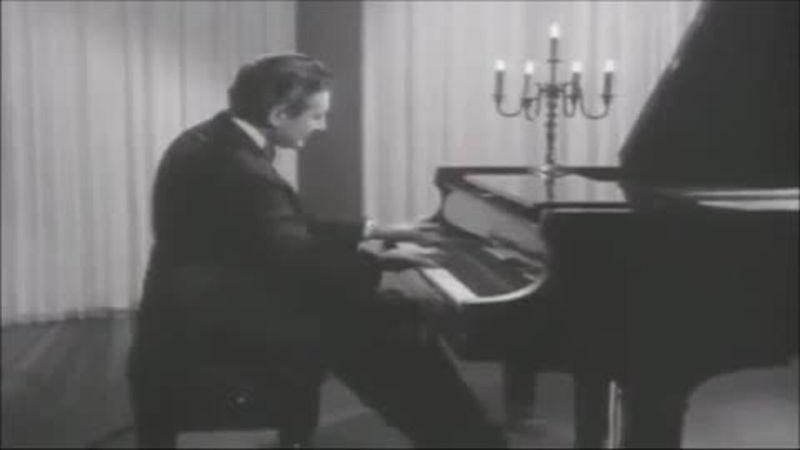The Wild West wasn’t just about shootouts and saloons—it had its own bizarre language, too. Between the “rootin’ tootin’” and the “howdy, partner,” cowboys tossed around slang so strange, even a tumbleweed would stop rolling in confusion. Saddle up as we decode some of the most eyebrow-raising lingo from the frontier.
1. Lunger
With a cough that echoed through the dusty streets, the term ‘Lunger’ described more than just a sound. It was a term for someone suffering from tuberculosis, a common and feared disease during the Wild West era. Tuberculosis was a leading cause of death at the time, making the slang both grim and significant.
While it may sound like a punch to the stomach, it instead represented a battle for breath, a fight against an invisible foe. The word paints a vivid picture of the harsh realities of life on the frontier, where health was fragile and every breath was precious.
2. Calf Slobber
Whipped cream became ‘calf slobber’ in the playful language of cowboys, turning a sweet treat into a scene from the barnyard.
This bizarre comparison offers a glimpse into the humor and creativity of frontier folks. Whipped cream was a luxury, and its slang name added a rustic twist to its enjoyment. Calf slobber wasn’t just a dessert; it was a connection to the everyday life of the ranch, where whimsy met wit.
3. Fice Dog
In the midst of the vast landscape, the fice dog stood small yet mighty. Known for its noisy and bold demeanor, this little canine became a symbol of unexpected courage. The name suggests a typo, yet it cleverly captures the essence of these brave, barking companions.
Despite their size, fice dogs were notorious for their bravery, guarding homes and herding livestock. They were more than just pets; they were partners in survival, embodying the spirit of resilience and determination that defined the Wild West. This tiny term packs a punch.
4. Hornswoggle
Ever been hornswoggled? It’s the art of deception wrapped in a whimsical word that sounds like a rodeo move but means something far more cunning. In the Wild West, to hornswoggle was to cheat or bamboozle someone, a common practice among the less scrupulous.
This term captures the essence of trickery, a dance of wits where only the sharpest could avoid being fooled. Cowboys and con artists alike used their savvy to outsmart each other, making hornswoggling a part of the daily hustle. To avoid falling victim was to be truly wise in the ways of the West.
5. Pony Up
When it was time to settle debts, cowboys were told to “pony up,” a phrase that called for prompt payment. It might sound like a call to groom a horse, but it was actually about settling accounts.
This term reflects the frontier’s emphasis on personal responsibility and honor. In a land where trust was as valuable as gold, paying one’s debts was a mark of character. Failing to do so could tarnish a cowboy’s reputation faster than a bucking bronco. Pony up or ride out; the choice was yours.
6. Bangtail
The bangtail galloped across the prairie, a term as swift as the horses it described. Referring to a racehorse, bangtail conjured images of speed, grace, and the thrill of the track. The name might sound like a hairstyle, but its connection to racing was unmistakable.
In the Wild West, where horse racing was a popular pastime, the term bangtail became synonymous with excitement. These horses were the pride of their owners, symbols of status and skill. Betting on a bangtail was a gamble that could lead to fortune or folly.
7. Toad-Strangler
Picture a rain so heavy it could drown a toad; that’s a toad-strangler. This vivid phrase captured the chaos of the Wild West’s occasional deluges, where roads turned to rivers and cowboys sought shelter wherever they could find it.
Toad-stranglers were more than just weather events; they were stories in themselves, tales of nature’s fury that challenged the resilience of frontier life. The term paints a picture of survival, where humor and exaggeration met the harsh realities of the wilderness. It’s a reminder of the untamed elements that shaped the wild frontier.
8. Cow Kicker
In the world of cowhands and cattle drives, being called a cow kicker was no compliment. This term was an insult for beginners or greenhorns, those who lacked the finesse required for ranch life.
Cow kickers had a lot to learn, and the nickname served as a reminder of their rookie status. It was all part of the hazing process, a rite of passage on the rugged path to becoming a seasoned cowboy.
9. Sawbones
With a name like sawbones, you’d hope the doctor knew more than just cutting. This slang for a doctor evoked the rough, ready, and often rudimentary medical practices of the Wild West.
The term painted a picture of a gritty life, where medical care was as much about survival as healing. These frontier doctors were jacks-of-all-trades, dealing with everything from gunshot wounds to everyday ailments. The name itself hints at their sometimes grim methods, where a steady hand and strong stomach were as essential as medical knowledge.
10. Whistle Belly Vengeance
This term referred to a kind of homemade, barely drinkable beer that was more punishment than pleasure.
Cowboys gathered around the campfire, sharing stories and laughs, often found themselves faced with this dubious drink. It was a reminder of the scarcity and improvisation that defined frontier life. The name itself suggests a humorous take on the brewing failures, where vengeance was served in a tin cup, a testament to the wild ingenuity of the West.
11. Chuck a Dummy
When a cowboy “chucked a dummy,” it wasn’t a puppet show gone awry. This slang described the act of fainting or collapsing, often with dramatic flair.
In the Wild West, where life was rugged and unpredictable, such fainting spells were both a cause for concern and a source of amusement. The expression reflects the theater of frontier life, where even a swoon could become part of the narrative. Cowboys, known for their toughness, might fall victim to exhaustion, heat, or even a surprise, turning a simple faint into a memorable scene.
12. Snake in the Boot
“There’s a snake in my boot!” might sound like a line from a western movie, but it was a way to describe a traitor. In the Wild West, trust was as rare as water.
The phrase evoked images of danger lurking where least expected, a poignant metaphor for betrayal. Cowboys had to be wary of more than just rattlesnakes. Human snakes, those who would deceive and betray, were equally feared. The expression served as a warning, a reminder to keep one’s eyes open and to tread carefully in the unpredictable world of the frontier.
13. Catawampous
When things went catawampous, nothing was as it should be. This term described a situation completely messed up or out of control, a fitting slang for the unpredictable Wild West.
The word itself sounds as chaotic as the scenes it described, from brawls in saloons to runaway stagecoaches. It painted a picture of the lawless chaos that sometimes reigned, where order was a fragile and fleeting thing. Catawampous moments were both feared and relished, reminders of the untamed spirit of the frontier, where adventure awaited around every corner.
14. Dry Gulch
To dry gulch someone was to ambush them, a tactic that required stealth and cunning. In the Wild West, ambushes could mean the difference between life and death.
This term paints a picture of the frontier’s treacherous side, where danger lurked in every shadow. The dry gulch was a place of opportunity for the cunning and a trap for the unwary. It was a reminder of the constant vigilance required to survive in the wilderness, where alliances were fragile and trust was hard-earned.
15. Fandango
In the heart of the Wild West, a fandango could break out at any moment. This term described wild behavior, a rowdy party, or even the dance itself.
Fandangos were part of the social fabric, where cowboys and townsfolk gathered to celebrate, let loose, and forget their troubles. It was a time when music filled the air and spirits were high. The word itself captures the lively essence of these gatherings, where the line between dance and chaos blurred, and the night was filled with laughter and revelry.
16. Gut Warmer
When the nights turned cold, cowboys reached for a gut warmer—whiskey, that is. This term was a nod to the warming effects of a good drink, a staple in any cowboy’s life.
Whiskey provided more than just warmth; it was a source of courage and camaraderie, a companion on lonely trails. The name gut warmer paints a picture of a rugged life, where simple pleasures were savored. It was a reminder of the harsh conditions cowboys faced and the small comforts that made the frontier home.
17. Tenderfoot
A tenderfoot in the Wild West was a newcomer, someone not yet toughened by frontier life. With clean boots and wide eyes, they were easy to spot among the seasoned cowboys.
This term was both a label and a challenge, an invitation to prove oneself in a land that demanded resilience and grit. Tenderfoots had a lot to learn, but they brought fresh perspectives and new energy to the trails. They represented hope and the future, a reminder that even the most weathered cowboy was once a greenhorn themselves.
18. Skedaddle
When trouble brewed, it was time to skedaddle. This term captured the urgency of getting out fast, a common occurrence in the unpredictable Wild West.
Skedaddling was both an art and a necessity, a way to escape danger or avoid unwanted attention. The word itself sounds playful, yet it describes a serious strategy for survival. Cowboys and townsfolk alike mastered the art of the quick exit, turning skedaddling into a dance of survival. It reflects the ever-present dangers and the need for quick thinking on the frontier.
19. Paint
A paint wasn’t a mural on a saloon wall; it was a horse with splotchy or spotted coloring. These distinctive patterns made paint horses stand out, turning them into prizes on the frontier.
Their beauty was matched by their versatility, as they served as loyal companions on the rugged trails. Paint horses were more than just transport; they were symbols of individuality and strength, reflecting the diverse and vibrant spirit of the Wild West. Their unique markings became badges of pride for their owners, adding color to the frontier landscape.
20. Airin’ the Lungs
To air the lungs was to yell, often with the intent to start trouble. In the Wild West, where disputes were settled with words or weapons, airin’ the lungs was sometimes the first shot fired.
This term evokes the raw, unfiltered communication that characterized frontier life. Yelling was both a release and a challenge, a way to assert dominance or express frustration. It was part of the language of the land, where silence was rare and voices carried across open plains, echoing the untamed nature of the wilderness.
21. Tickle the Ivories
To tickle the ivories was to play the piano, a skill that brought music and joy to the dusty saloons of the Wild West. The phrase captures the playful interaction between musician and instrument.
Music was a balm for the weary, a way to bring people together in a land often defined by hardship. Ticking the ivories was more than just entertainment; it was a connection to culture and community. The piano’s melodies echoed the hopes and dreams of those who gathered to listen, weaving harmony into the rugged tapestry of frontier life.
